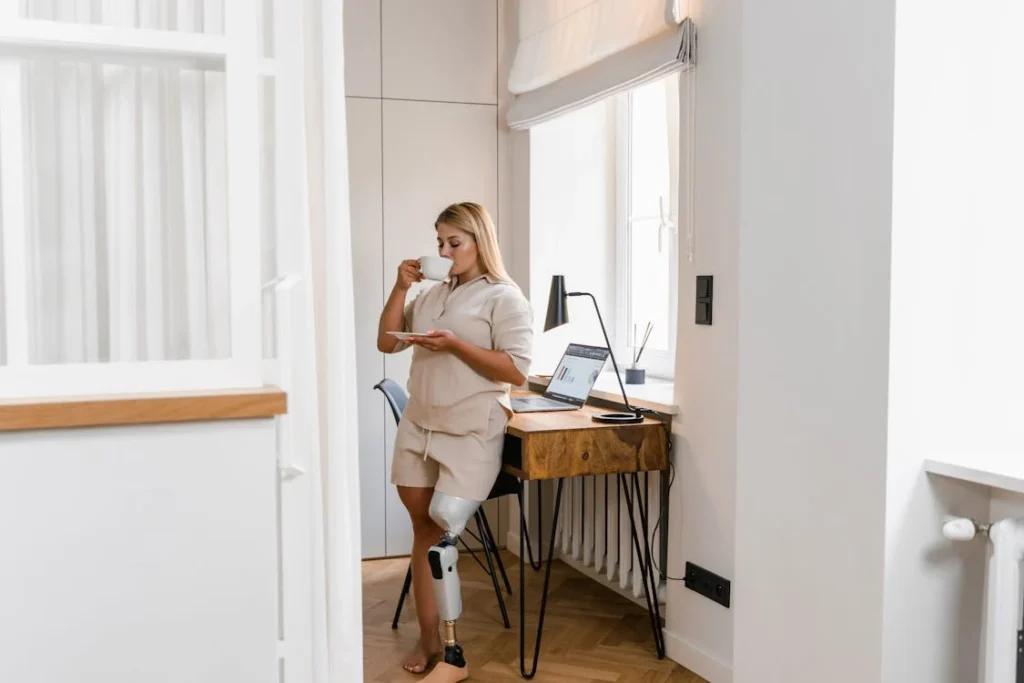When someone loses a limb, it changes more than just how they move. It touches every part of life — how they feel, how they see themselves, and how they connect with others. A prosthetic is more than a tool. It’s a way back to confidence, freedom, and peace of mind.
But not just any prosthetic can do that.
A prosthetic that feels heavy, awkward, or painful can make someone feel worse, not better. On the other hand, a well-fitted, comfortable prosthetic can ease anxiety, reduce frustration, and help people feel like themselves again.
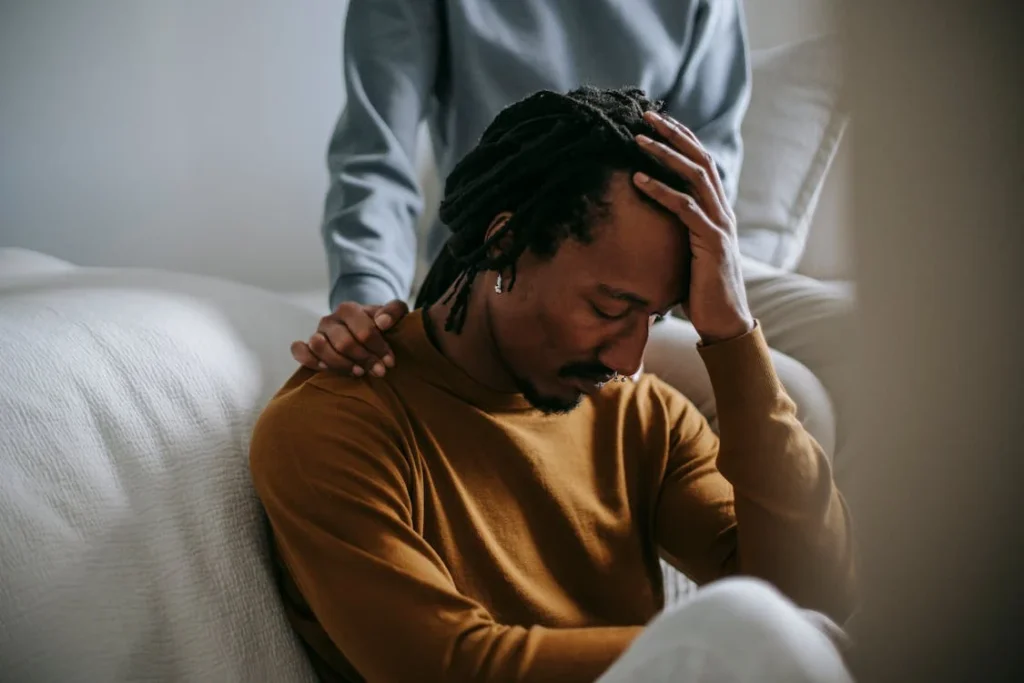
The Emotional Journey After Limb Loss
The First Days: Grief, Fear, and Uncertainty
Losing a limb is life-changing. In the beginning, emotions can feel overwhelming. There’s grief — not just for the limb, but for everything that came with it. The simple daily actions. The sense of ease. The idea of what life used to be. This isn’t just physical recovery. It’s emotional and mental, too.
Many people feel fear about what the future will look like. Questions like Will I be able to work again?, How will people see me?, Will I ever feel normal? — these are real and powerful. And they deserve gentle, honest answers.
The Mind’s Reaction to Physical Change
Our body image is closely tied to how we feel about ourselves. When a part of the body is suddenly gone, it can shake that image. Some people feel disconnected from their body. Others may avoid mirrors or feel like they’ve lost their identity.
This emotional shift can lead to feelings of frustration, sadness, or even shame. In some cases, people may isolate themselves or pull away from social life. These reactions are natural, but they can also be long-lasting without the right support.
The Role of Support and Compassion
Healing doesn’t only happen in the hospital. It happens in small conversations, in the quiet encouragement from loved ones, and in the kindness of a care team that listens. When people feel heard and supported, they take steps forward with more courage.
The psychological side of recovery is often overlooked. But it’s just as real as the physical part. People need time and space to grieve, and also the right tools to rebuild their sense of self. One of those tools is a prosthetic that actually feels good.
A well-fitting prosthetic is more than a device. It’s a message that says, You’re not broken. You’re adapting.
Why the Right Fit Changes Everything
Comfort and Confidence Go Hand in Hand
Imagine wearing a shoe that doesn’t fit. Every step is a reminder that something’s wrong. You might walk less, or not at all. Now imagine this feeling multiplied every day, with something that’s supposed to help you live more freely.
When a prosthetic is uncomfortable, it’s not just the body that suffers. It chips away at confidence. People may start to doubt themselves, their ability to work, socialize, or enjoy life. But when the fit is right — when the prosthetic feels like it belongs — things change.
There’s less hesitation. Less second-guessing. Every smooth movement, every pain-free moment is a small emotional win. Over time, these add up and create a strong foundation for recovery and self-trust.
Freedom to Move, Freedom to Feel
Movement plays a huge role in how we feel. Physical activity helps release tension, ease anxiety, and boost mood. But for that to happen, the prosthetic must allow easy, natural movement. It shouldn’t feel like a burden. It should feel like part of the body.
A prosthetic that moves with the user gives them the freedom to focus on life — not on the tool they’re using. Whether it’s cooking, writing, working, or hugging someone they love, these simple actions help people feel alive again.
That feeling of ease leads to a more relaxed state of mind. The mind stops focusing on pain or struggle and starts enjoying the present moment. Over time, this reduces emotional stress and helps build mental resilience.
Getting Back to a Routine
One of the hardest parts of limb loss is the interruption of daily life. Even the smallest tasks, like brushing teeth or opening a door, can feel frustrating. This can lead to emotional exhaustion. A comfortable prosthetic helps bring back that rhythm.
With a better fit, people regain control over their day. They don’t have to think about how to adapt each time. They can simply do. That return to routine restores a sense of normalcy, and with it, a sense of peace.
It’s not about going back to how things were. It’s about finding a new way forward — one that feels just as natural.
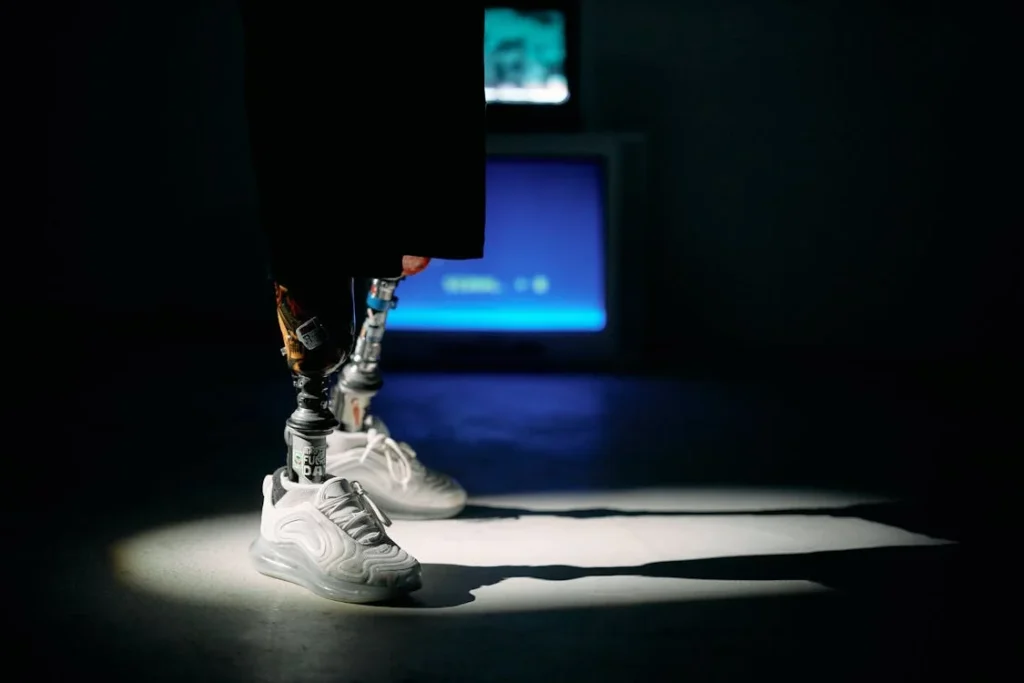
Restoring Self-Esteem Through Physical Ease
The Way We See Ourselves Shapes Everything
Self-esteem is deeply personal. It’s not just about how others see us — it’s about how we see ourselves when we wake up in the morning. After limb loss, this image can change quickly. People might feel less capable or less confident in their own skin.
When a prosthetic is poorly designed or uncomfortable, it can be a constant reminder of what’s missing. It makes someone feel like they need to hide, or that they’re always one step behind. But when a prosthetic fits well — when it looks and feels like a natural extension — it begins to shift that inner image.
Suddenly, people are not defined by what they’ve lost, but by how well they’ve adapted. That shift brings pride, and over time, self-esteem starts to rebuild. Not just in front of others, but quietly and deeply within.
Looking in the Mirror with Confidence Again
Many users describe a moment where they look in the mirror and smile — not because everything’s perfect, but because something feels right. That feeling comes when the prosthetic doesn’t stand out. It blends in. It supports their movements, it matches their posture, and it helps them feel balanced.
Appearance might seem like a small part of recovery, but it has a powerful psychological effect. When someone feels good about how they look, they are more likely to engage socially, try new things, and believe in themselves.
A good prosthetic doesn’t try to hide or cover up. It reflects who the person is — strong, capable, and moving forward.
From Hesitation to Expression
Before receiving a comfortable prosthetic, some people avoid situations where they might be noticed. They hesitate to go to gatherings or speak up in groups. This withdrawal can slowly eat away at emotional health.
Once they receive a prosthetic that feels like it belongs, the hesitation fades. People begin to express themselves more openly — with their hands, their movements, their words. They join conversations with more ease. They laugh without self-consciousness. They start living with presence instead of pulling back.
This return of expression is a vital step toward psychological healing. It means the prosthetic is no longer something they carry. It’s something they use — with pride.
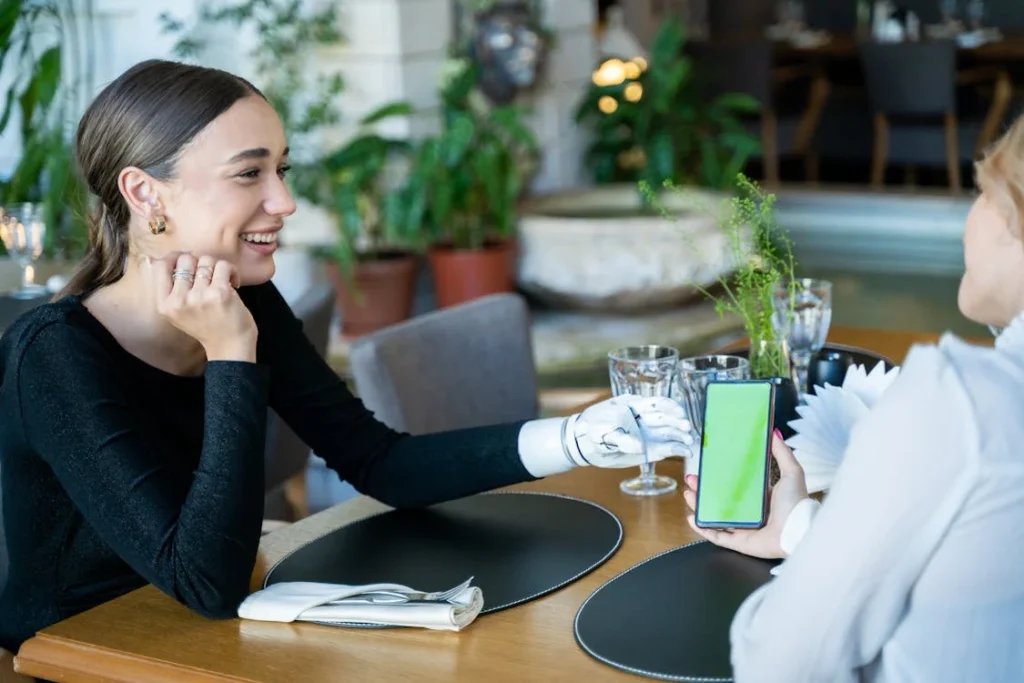
Building Social Connections Without Fear
Rejoining the World Around You
Loneliness is a common experience after limb loss. It doesn’t come from being physically alone — it comes from feeling like no one else understands. Many people feel unsure about going out in public, meeting friends, or doing things they once loved.
A poor-fitting prosthetic adds to that stress. Every discomfort or awkward movement makes social interactions harder. People worry about being stared at. They worry about tripping, struggling, or feeling out of place.
But a prosthetic that fits well changes that experience. It removes those small, constant distractions. It lets people focus on the moment, on the people they’re with, and on the joy of connecting again. They stop worrying about what others might think, and instead, they enjoy the world around them.
Being Seen for Who You Are
People are not their injuries. They are their dreams, their stories, and their spirit. But when a prosthetic draws attention in the wrong way — through noise, discomfort, or lack of balance — it gets in the way of that story.
A well-designed, well-fitting prosthetic helps shift the focus. People are seen for who they are — their smile, their energy, their presence. They don’t have to explain or apologize for their movement. The prosthetic becomes invisible in the best possible way — by working so well that no one notices it at all.
This allows people to build relationships without the weight of self-consciousness. They feel included, not observed. And that makes all the difference.
Trusting Your Body in Social Spaces
Social settings can be unpredictable. A sudden hug, a handshake, a shared activity — these moments require trust in your body. If you’re unsure how your prosthetic will respond, you might avoid those situations altogether.
But a comfortable, reliable prosthetic gives you that trust back. You know it will move with you. You know it won’t slip, pinch, or hurt. That confidence lets you relax and engage fully, without fear of the unexpected.
This kind of trust makes everyday moments richer — a dance at a wedding, a game with your child, or a meal with friends. These are the moments where life happens. And they become much more joyful when you can be fully present in them.
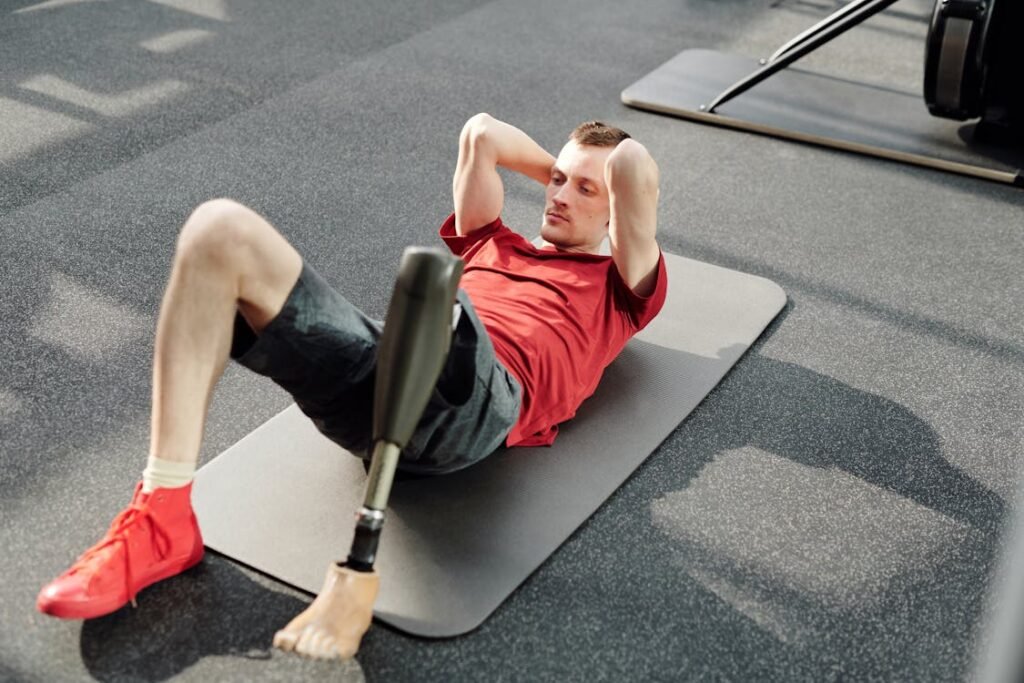
Independence and Mental Relief Go Hand in Hand
Relearning Life with Less Effort
Every action takes energy. After limb loss, even simple tasks can take twice as long and feel five times harder. Getting dressed, making tea, picking up a pen — each movement demands mental effort because the body has changed, and the brain is trying to catch up.
When a prosthetic doesn’t fit well, it makes these tasks even harder. It causes discomfort, slips out of place, or limits motion. So instead of focusing on the task, people have to focus on managing the device. That drains energy. And over time, it drains motivation.
But with a prosthetic that’s designed for the user’s body and needs, the mental load decreases. Movements feel smoother. There’s less second-guessing. People don’t have to constantly adjust or work around limitations. Their mind is free to focus on living, not coping.
That’s how independence grows — not in giant leaps, but in small, confident steps every day.
Letting Go of Constant Worry
Worry has a way of wearing people down. It’s not just the big fears — like falling or injuring yourself. It’s the daily doubts: Will I make it through the day without pain? What if this slips while I’m out? Can I trust my own body?
A poorly fitted prosthetic keeps these questions running in the background like noise. Even when things seem fine on the surface, that low hum of worry eats away at peace of mind.
When the fit is right, the worry fades. People stop checking and re-checking their movements. They stop bracing for discomfort. They begin to trust that their prosthetic will support them, not slow them down.
That sense of trust creates room for joy. For trying new things. For focusing on relationships, work, and personal goals instead of just managing the day.
The Mental Space to Dream Again
At first, many people just want to get through the day. But after a while, the mind starts to ask for more. What about the hobbies they used to enjoy? What about travel? Work? Starting something new?
These questions are important. They signal hope — the belief that life can be full again.
But hope needs space to grow. It needs a break from struggle and stress. A well-fitted prosthetic creates that space. It gives people the ability to imagine life beyond recovery. It reminds them that they’re still the same person, with the same potential, just moving through the world in a different way now.
And sometimes, different can be even stronger.
Emotional Resilience Through Physical Comfort
Healing Isn’t Just About Time
It’s common to think that healing just takes time. But time doesn’t always heal. What really helps is progress — those moments where something that felt hard yesterday feels easier today. That’s what builds emotional strength.
A poorly fitting prosthetic can slow this progress. Instead of moving forward, people feel stuck. Instead of growing stronger, they just learn to tolerate the discomfort.
But when the prosthetic fits well, progress feels natural. Every new achievement — no matter how small — reinforces a sense of strength. It says, I can do this. And over time, that belief grows deeper and stronger.
Building a Mindset of Possibility
The mind follows the body. When someone’s body starts to move with ease, their mindset changes too. They begin to focus on what they can do, not what they’ve lost. That shift is powerful.
It helps people adapt to new challenges without fear. It helps them stay calm during setbacks. And it helps them build habits that support their mental health — regular exercise, social time, creative hobbies.
Comfort is what makes this possible. When people aren’t fighting pain or limitation, they have more energy for growth.
They go from thinking, How will I get through today? to What can I try next?
Becoming Your Own Encouragement
External support is important. But the most lasting confidence comes from within. It comes from knowing you’ve done hard things before — and can do them again.
A comfortable prosthetic helps people gather these quiet wins each day. Not just once in a while, but consistently. These wins build up and create a foundation of self-belief.
That’s what emotional resilience really looks like — not just bouncing back, but bouncing forward. Each step, each action, becomes its own form of encouragement.
Over time, people stop needing to hear “You’ve got this” from others — because they start saying it to themselves.
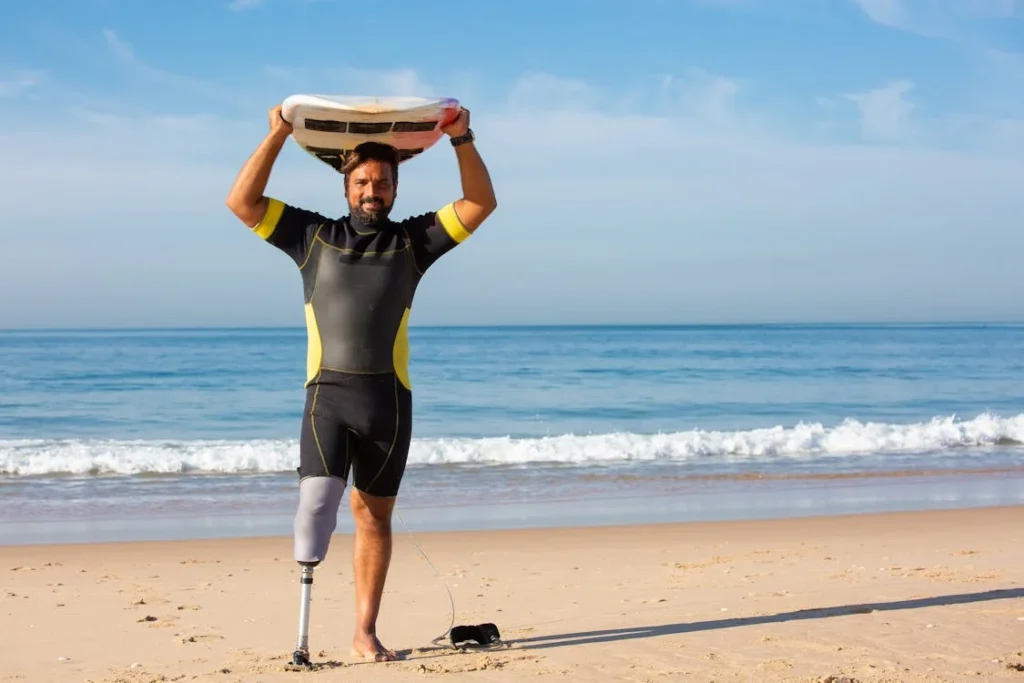
Long-Term Mental Health: Stability Through Comfort
Living Without the Constant Fight
Living with a prosthetic doesn’t mean every day is a struggle — or at least, it shouldn’t. But when a prosthetic is uncomfortable or unreliable, it can feel like the person is constantly fighting their own body. This daily fight drains more than just physical energy. It takes a toll on the mind.
Over time, the stress adds up. Anxiety builds. Some may even experience symptoms of depression — not necessarily from the loss itself, but from the unrelenting challenges that follow. When every movement feels like a battle, joy takes a backseat.
That’s why the comfort and fit of a prosthetic is never just about the body. It’s about preventing this slow wear-and-tear on the mind. A prosthetic that moves with ease allows for stillness in the heart and quiet in the mind. It helps people live — not just survive.
Feeling Like Yourself Again
One of the most powerful psychological benefits of a well-fitted prosthetic is the return of identity. For many, limb loss can feel like a sudden disconnection from the person they once were. Even simple gestures — like waving, writing, or picking up a child — feel foreign.
But when a prosthetic fits well and feels natural, people often rediscover themselves. Their movements become fluid again. Their routines feel normal again. They laugh without self-consciousness. They participate in family life, in work, in friendship — not as someone different, but as themselves.
This return of identity is deeply healing. It creates emotional stability. It brings a quiet kind of happiness — not loud or flashy, but strong and lasting.
Reducing the Risk of Emotional Burnout
Caregivers, family members, and even users themselves can sometimes feel emotionally worn out. This is common, especially when progress feels slow or painful. The effort it takes to manage the emotional, physical, and social sides of limb loss can be exhausting.
But when the prosthetic fits well, many of these sources of stress fade into the background. Less discomfort means fewer mood swings. More independence means fewer moments of helplessness. As frustration decreases, space opens up for patience, laughter, and connection.
This isn’t just good for the user. It’s good for everyone around them. Relationships become stronger. Conversations become lighter. The overall emotional atmosphere improves — at home, at work, and in care settings.
A good fit doesn’t just lift one person — it lifts the whole environment they live in.
Returning to Work and Daily Life with Confidence
Starting Fresh Without Fear
Returning to work after limb loss is a big milestone. But it often comes with a lot of fear. Will I be able to do my tasks? Will people treat me differently? What if I can’t keep up?
These fears are completely valid. And they often grow worse if the prosthetic being used isn’t working right. A loose or painful fit can make it harder to concentrate. It can make every task feel harder than it is. And it can fuel anxiety about being watched or judged.
But when the prosthetic fits well, it becomes an ally instead of a barrier. People can move through their workday without having to think about how to move. They can focus on the task, not the tool. This mental freedom is key to rebuilding workplace confidence.
A smooth return to work also restores routine, purpose, and pride — all of which are deeply connected to mental well-being.
Feeling Productive and Valued Again
Work gives more than just income. It gives a sense of value — of being part of something, of contributing. When someone returns to their job with a prosthetic that supports them well, they’re more likely to feel productive, not limited.
They can participate in team efforts without special arrangements or extra help. They can meet deadlines. They can even pursue new roles or training. All of this feeds a sense of capability, which is one of the biggest drivers of long-term emotional health.
It also changes how others see them — not as someone in recovery, but as someone with strength, ideas, and impact.
Regaining a Sense of Control
Control is something we don’t always notice — until it’s gone. After limb loss, many people feel like they’ve lost control over their body, their time, and their independence.
The right prosthetic helps restore that control. When someone can walk into a meeting, cook a meal, or type on a laptop without pain or hesitation, they regain ownership of their life. They’re not waiting on help. They’re not adjusting their whole day around discomfort.
This return of control builds mental strength. It allows for planning, dreaming, and taking on new goals — not because everything is perfect, but because the basics are solid again.
And it all starts with comfort.

Emotional Healing Is Built on Physical Support
The Unseen Power of a Comfortable Fit
We often talk about prosthetics in terms of movement — walking, holding, reaching, grasping. But movement is only part of the story. What people don’t always see is the emotional impact of each step, each grip, each silent moment where something just feels right.
A comfortable, well-fitted prosthetic does more than enable action. It eases the mind. It lifts the spirit. It allows people to re-enter their lives with a sense of calm and strength that is hard to describe — but easy to feel.
The comfort in every motion adds up to something powerful. It becomes confidence. It becomes connection. It becomes a new, fuller chapter of life.
Rewriting the Narrative of Recovery
Limb loss is not the end of someone’s story. But the kind of support someone receives — and the quality of the prosthetic they use — plays a big role in how that story continues. When the prosthetic feels wrong, recovery feels stuck. When it feels right, the path ahead opens up.
People are not looking for perfection. They’re looking for tools that help them live without fear, express themselves without hesitation, and move without pain. They want to be known for who they are — not for what they’ve lost.
The right prosthetic helps write that story. Not with big, dramatic moments, but with daily proof that they’re still whole. Still strong. Still capable of joy.
The Role of Care in Every Step
Behind every comfortable prosthetic is a team that listens. That’s why the process of fitting matters so much. It’s not just measurements and models. It’s about truly understanding the person — their body, their lifestyle, their hopes and worries.
When people are part of the process — when they get to try, adjust, and learn at their own pace — they feel empowered. And that sense of ownership over their recovery makes all the difference.
This is where emotional healing really begins: when people feel seen, supported, and equipped with something that fits not just their limb, but their life.
Conclusion
Comfort is not a luxury. It’s a foundation. When a prosthetic fits well, it sets the stage for emotional balance, mental clarity, and a fuller, richer life. It brings back dignity, joy, and the freedom to move through the world without apology or pain.
We’ve seen again and again that when people feel good in their bodies, they feel better in their minds. And when they feel better in their minds, they live better — not someday, but today.
Recovery doesn’t happen all at once. But it starts with something simple: the right fit.



